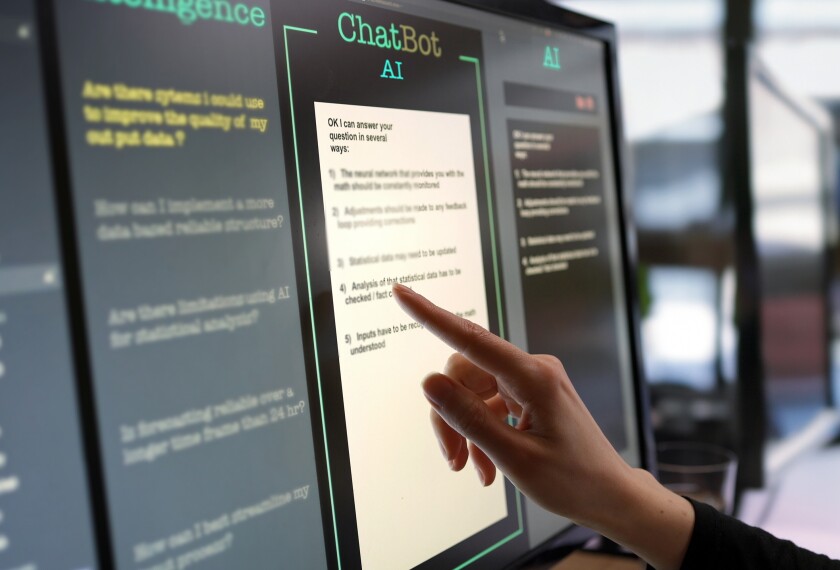While the hype around ChatGPT and other artificial intelligence tools in K-12 has made it seem like most educators have tried them, new survey results from the EdWeek Research Center suggest that’s not the case.
Two of every three educators said they haven’t used AI-driven tools in their classrooms, according to the survey, which included 498 teachers and was conducted between Nov. 30 and Dec. 6.
When broken down, 37 percent said they’ve never used them and don’t plan to start, 29 percent say they haven’t used them but plan to start this school year or in the near future, according to the survey results.
ChatGPT and other generative AI tools entered the K-12 scene last year, and AI experts believe the technology has the potential to transform education and how people do their jobs. Still, many teachers are unfamiliar and uncomfortable with the technology.
The survey asked teachers why they’re not currently using AI tools in the classroom. Here’s what they said:
1. Teachers have other, more pressing priorities
Teachers have many responsibilities on their plates and do not have the time to learn more about and experiment with AI, which experts say is crucial to getting teachers comfortable with the technology.
Nearly half of teachers (46 percent) haven’t explored these tools because they have other priorities that are more important, according to the survey results.
“I would like to learn more about AI in the classroom, but with four preps and a new curriculum, I have a hard time finding more time to do so,” a high school foreign language teacher in South Dakota said in an open-ended response to the survey.
A middle school health teacher in Nevada wrote, “We are just trying to keep the kids from fighting all day. No time for teaching.”
2. They lack the knowledge and support
The next most popular reason is that teachers don’t know how to use AI tools, and the other reasons that round out the top five are also related to teachers’ lack of knowledge and support for how to use AI tools effectively and appropriately, the survey found.
I was asking for a district policy for student use of AI last spring and was brushed off. I am on the digital learning community for my building and they won't take a firm stand either. Teachers shouldn't be left out in the wind on this issue.
In open-ended responses, many educators noted that they haven’t been trained on the technology, they don’t know if using or teaching about AI is compatible with state standards, and they haven’t received guidance from district or school leaders.
“I was asking for a district policy for student use of AI last spring and was brushed off,” a high school social studies teacher in Minnesota wrote in an open-ended response. “I am on the digital learning community for my building and they won’t take a firm stand either. Teachers shouldn’t be left out in the wind on this issue.”
3. Teachers are concerned about students learning to think for themselves and do original work
Some teachers have big concerns that students could use AI tools to cheat. Nearly 1 in 5 teachers said they don’t believe the technology is appropriate for a K-12 setting because of its potential to be used for cheating, the survey found.
Some teachers wrote in open-ended responses that they’re concerned that allowing student use of AI could make students more “lazy” and “lead to further degradation of critical thinking skills.”
Teachers also said students should learn to be creative, generate their own ideas and focus on human interaction and hands-on learning.
“Technology should have its place in school, but it shouldn’t replace a student’s ability to think and complete tasks on their own,” a high school math teacher in Georgia wrote.
Others believe human thinking should trump machine learning: “Why rely on artificial intelligence when you have the real deal?” a middle school social studies teacher wrote.







